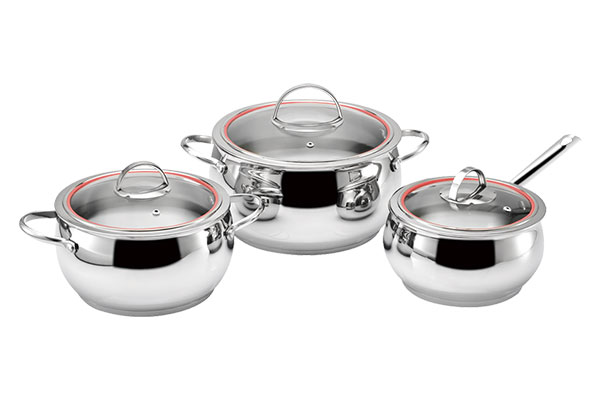Stainless steel refers to the steel resistant to weak corrosive media such as air, steam and water, and chemical corrosive media such as acid, alkali and salt. It is made of ferrochrome alloy and some other trace elements. Because of its good metal performance and corrosion resistance compared with other metals, the utensils are beautiful and durable.
Is 304 stainless steel really rustless?
The real export stainless steel pot products should be able to use for hundreds of years without rusting. But the stainless steel we see on the market can still be rusted and corroded, but in general, the corrosion rate is very slow. This experiment has been done: put two pieces of stainless steel and ordinary carbon steel, both of which weigh 20 grams, together and boil them in dilute nitric acid for a day and night. As a result, ordinary steel is severely corroded, leaving only 13.6 grams, while stainless steel weighs 19.8 grams. Because stainless steel is not easy to rust, many corrosion-resistant equipment in chemical plants are made of stainless steel.
Whether stainless steel is easy to rust or not, the content of chromium is the key. It is stipulated in China that the chromium content in stainless steel should not be less than 12%. Due to the high proportion of chromium in stainless steel composition, its surface is always in passivation state (neutral and alkaline) in general, that is to say, it is protected by a tight protective film, so it will not rust. If the chromium content is low, i.e. poor stainless steel, its surface can not generate enough tight passivation film, which can not play a protective role, the stainless steel will still rust. Another situation is that stainless steel encounters highly active substances (such as table salt in life), which contain high chloride or fluorine ions. Even if high-quality stainless steel contains high chromium, the passivation film on its surface will be damaged, making the surface of stainless steel in an active state. At this time, stainless steel will not only rust, but also dissolve heavy metal ions harmful to the body.
